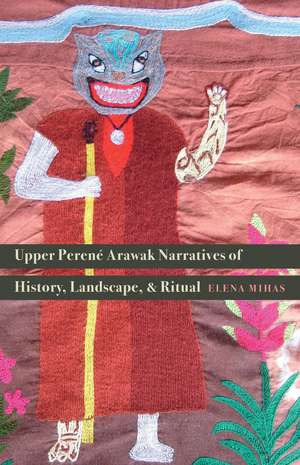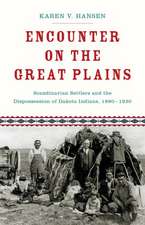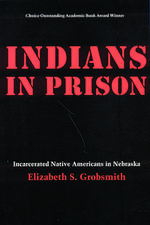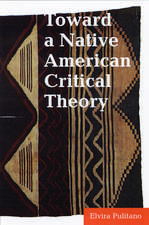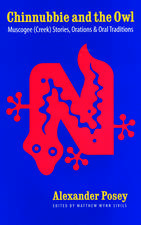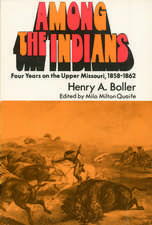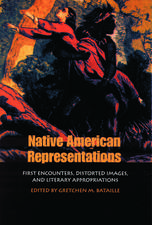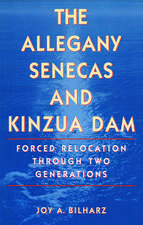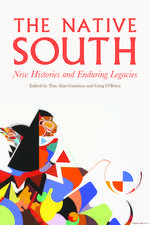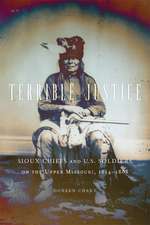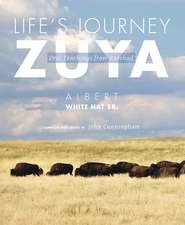Upper Perené Arawak Narratives of History, Landscape, and Ritual
Autor Elena Mihasen Limba Engleză Paperback – 29 feb 2016
Published through the Recovering Languages and Literacies of the Americas initiative, supported by the Andrew W. Mellon Foundation
The rich storytelling traditions of the Alto Perené Arawaks of eastern Peru are showcased in this bilingual collection of traditional narratives, ethnographic accounts, women’s autobiographical stories, songs, chants, and ritual speeches. The Alto Perené speakers are located in the colonization frontier at the foot of the eastern Andes and the western fringe of the Amazonian jungle. Unfortunately, their language has a slim chance of surviving because only about three hundred fluent speakers remain. This volume collects and preserves the power and vitality of Alto Perené oral and linguistic traditions, as told by thirty members of the Native community.
Upper Perené Arawak Narratives of History, Landscape, and Ritual covers a range of themes in the Alto Perené oral tradition, through genres such as myths, folk tales, autobiographical accounts, and ethnographic texts about customs and rituals, as well as songs, chants, and oratory. Transcribed and translated by Elena Mihas, a specialist in Northern Kampa language varieties, and grounded in the actual performances of Alto Perené speakers, this collection makes these stories available in English for the first time. Each original text in Alto Perené is accompanied by an English translation, and each theme is introduced with an essay providing biographical, cultural, and linguistic information. This collection of oral literature is masterful and authoritative as well as entertaining and provocative, testifying to the power of Alto Perené storytelling.
Upper Perené Arawak Narratives of History, Landscape, and Ritual covers a range of themes in the Alto Perené oral tradition, through genres such as myths, folk tales, autobiographical accounts, and ethnographic texts about customs and rituals, as well as songs, chants, and oratory. Transcribed and translated by Elena Mihas, a specialist in Northern Kampa language varieties, and grounded in the actual performances of Alto Perené speakers, this collection makes these stories available in English for the first time. Each original text in Alto Perené is accompanied by an English translation, and each theme is introduced with an essay providing biographical, cultural, and linguistic information. This collection of oral literature is masterful and authoritative as well as entertaining and provocative, testifying to the power of Alto Perené storytelling.
| Toate formatele și edițiile | Preț | Express |
|---|---|---|
| Paperback (1) | 258.24 lei 43-57 zile | |
| Nebraska – 29 feb 2016 | 258.24 lei 43-57 zile | |
| Hardback (1) | 469.23 lei 22-36 zile | |
| Nebraska – 30 noi 2014 | 469.23 lei 22-36 zile |
Preț: 258.24 lei
Nou
Puncte Express: 387
Preț estimativ în valută:
49.43€ • 50.94$ • 41.73£
49.43€ • 50.94$ • 41.73£
Carte tipărită la comandă
Livrare economică 03-17 martie
Preluare comenzi: 021 569.72.76
Specificații
ISBN-13: 9780803285644
ISBN-10: 0803285647
Pagini: 486
Ilustrații: 27 photographs, 17 illustrations, 3 maps, 1 appendix, 1 glossary
Dimensiuni: 140 x 216 x 31 mm
Greutate: 0.61 kg
Editura: Nebraska
Colecția University of Nebraska Press
Locul publicării:United States
ISBN-10: 0803285647
Pagini: 486
Ilustrații: 27 photographs, 17 illustrations, 3 maps, 1 appendix, 1 glossary
Dimensiuni: 140 x 216 x 31 mm
Greutate: 0.61 kg
Editura: Nebraska
Colecția University of Nebraska Press
Locul publicării:United States
Notă biografică
Elena Mihas is a postdoctoral associate in anthropological linguistics at James Cook University in Australia.
Cuprins
List of Illustrations
Acknowledgments
Introduction: Objective, Method, Data, and Structure
Orthography
Abbreviations
Synopsis of Texts
Part 1. History
1. Pava vitsikirori kipatsi
Acknowledgments
Introduction: Objective, Method, Data, and Structure
Orthography
Abbreviations
Synopsis of Texts
Part 1. History
1. Pava vitsikirori kipatsi
(Pava, Who Made the Earth)
Cristobal Jumanga Lopez
2. Okoñaatantakari kaniri
(How Sweet Manioc Appeared)
Alberto Pérez Espinoza
3. Okoñaatantari paamari
(How Fire Came into Existence)
Ruth Quillatupa Lopez
4. Pava Apinka
(God Apinka)
Luis Mauricio Rosa
5. Apinka
Bertha Rodríguez de Caleb and Abdias Caleb Quinchori
6. Apinka
Elías Meza Pedro, Gregorio Santos Pérez, and Livia Julio de Quinchori
7. Yookantapakairi virakocha
(How the Whites Threw Us Out)
Fredi Miguel Ucayali
8. Natsitonini
(The Stream of Bones)
Manuel Rubén Jacinto
9. Tsika okantakota ovayeritantsi
(About the Craft of War)
Daniel Bernales Quillatupa
10. Apapanani
(The Brook of Liver Parts)
Gregorio Santos Pérez
11. Ovayeri inoshikantarori kooya
(When Warriors Kidnapped a Woman)
Paulina García Ñate
12. Ovayeri inoshikantzi eentsi
(The Warriors Kidnapped Children)
Ines Pérez de Santos
13. Nonkinkitsatakotero nayironi
(I Will Tell about My Deceased Mother-in-Law)
Victorina Rosas de Castro
14. Tsika okanta nosaikantakari Marankiaroki
(How We Settled Down in Bajo Marankiari)
Bertha Rodríguez de Caleb
15. Tsika okanta noñaakoventakiri matsipaye
(How I Witnessed Events Involving Witches)
Bertha Rodríguez de Caleb
Part 2. Landscape
16. Ashiropanko
(The Iron House)
Gerardo Castro Manuela
17. Atziri yamaniri mapi poña paamari
(People Were Worshipping Fire and Stone)
Elías Meza Pedro, with Gregorio Santos Pérez
18. Atziri yamaniri paamari
(People Were Worshipping Fire)
Cristobal Jumanga Lopez
19. Tzivi
(Salt)
Ruth Quillatupa Lopez
20. Tzivi
(Salt)
Abraham Jumanga Lopez
21. Manitzipanko
(The Jaguar House)
Ruth Quillatupa Lopez
22. Imoro Naviriri
(The Naviriri Hole)
Elías Meza Pedro
23. Otzinantakari otzishi omontero Samamparini
(How the Hill Appeared across from the Village of Villa Progreso)
Raul Martin Bernata
24. Anashironi
(The Anashirona Stream)
Julio Castro Shinkaki, with Delia Rosas Rodríguez
25. Pichanaki
Otoniel Ramos Rodríguez, with Daniel Bernales Quillatupa
26. Pichanaki
Almacia Benavidez Fernandez
27. Kiatsi
(The Owner of the River)
Carmen Pachiri Quinchori
28. Peyari
(The Bone Spirit)
Gregorio Santos Pérez
29. Iñaaventa kamari Kovatsironi
(Speaking with Regard to the Demon from Kovatsironi)
Ines Pérez de Santos
30. Tsamirimenta
(The Curassow Crest Stone)
Moises Santos Rojas
31. Maninkaroite
(The Invisible Women)
Moises Santos Rojas
32. Ashitarori otzishipaye
(Masters of the Hills)
Elena Nestor de Capurro, with Victoria Manchi de Martin
33. Inkaari Chorinkaveni
(Lake Churingaveni)
Moises Santos Rojas
34. Chorinkaveni
(Churingaveni)
Daniel Bernales Quillatupa
Part 3. Ritual
35. Ampinateri Pava
Part 3. Ritual
35. Ampinateri Pava
(What We Will Offer to Pava)
Clelia Mishari, with Gregorio Santos Pérez
36. Kamenantsi
(Traditional Advice)
Daniel Bernales Quillatupa
37. Tsika okantya ashimaapakotantyari
(How to Be a Good Fisherman)
Gregorio Santos Pérez
38. Yamaniri pava impereta
(They Were Worshipping the Stone Divinity)
Delia Rosas Rodríguez
39. Arika ashimaatya
(When We Fish)
Daniel Bernales Quillatupa
40. Ookantyarori inkani
(How to Chase Away Rain)
Daniel Bernales Quillatupa
41. Shinavaite ovariri atziri
(Shinavaite Who Ate People)
Abdias Caleb Quinchori
42. Okoñaatantakari mavira
(How Mavira Appeared)
Luis Mauricio Rosa, with Raul Martin Bernata and Victoria Manchi de Martin
43. Mavira
Elena Nestor de Capurro
44. Mavira
Ines Pérez de Santos and Moises Santos Rojas
45. Pavankiri ooria
(Solar Deity)
Bertha Rodríguez de Caleb
46. Iyovapajirika ooriatsiri
(When the Sun Comes Out)
Paulina García Ñate
47. Ipantsakoitziri kashiri
(They Sing about the Moon)
Paulina García Ñate
48. Arika antarote kooya
(When a Girl Had Her First Menses)
Daniel Bernales Quillatupa
49. Aavakantsi
(Taking a Spouse)
Gregorio Santos Pérez
50. Kamaki aparoni atziri
(When a Person Died)
Delia Rosas Rodríguez
51. Ikantakota sheripiari pairani
(About Shamans Who Existed in the Past)
Daniel Bernales Quillatupa
52. Sheripiari Julio Quintsori
(Shaman Julio Quintsori)
Frida Thomas Huamán
53. Impantsakoteri isherini
(He Will Sing about His Tobacco)
Paulina García Ñate
54. Yantavairi sheripiari
(Shaman’s Work)
Moises Santos Rojas
55. Sheripiari
(Shaman)
Ines Pérez de Santos
56. Okantakota matsitantsi
(About Witchcraft)
Ruth Quillatupa Lopez, with Daniel Bernales Quillatupa
57. Ochonkiri Abdias
(She Steam-Bathed Abdias)
María Virginia Lopez, Abdias Caleb Quinchori, Bertha Rodríguez de Caleb, and Victorina Rosas de Castro
58. Antavairi aavintantzinkaro
(Healer’s Work)
Luzmila Machari Quinchori
Concluding Remarks
Appendix: Ideophones Used by the Narrators
Concluding Remarks
Appendix: Ideophones Used by the Narrators
Notes
Glossary
References
Index
Recenzii
“A sophisticated and interesting, discourse-centered approach to culture that can serve as a model for integrating linguistic and sociocultural anthropology, this collection demonstrates how much cultural variability exists within and among the various indigenous communities of the Upper Amazon region.”—Jonathan Hill, author of Made-from-Bone: Trickster Myths, Music, and History in an Amazonian Community
“Books like this are a feast for linguists and anthropologists alike, and are all too rare. . . . The storytelling alone provides a unique insight into a world that will be unfamiliar to most English speakers. . . . Its integrated approach to culture and language . . . gives the reader a true appreciation of the mental universe inhabited by these speakers of a threatened, but defiant, language of Peru.”—Christopher Moseley, Ogmios, newsletter of the Foundation for Endangered Languages
